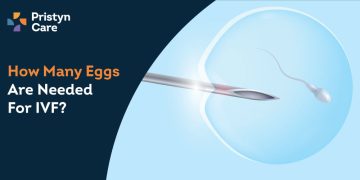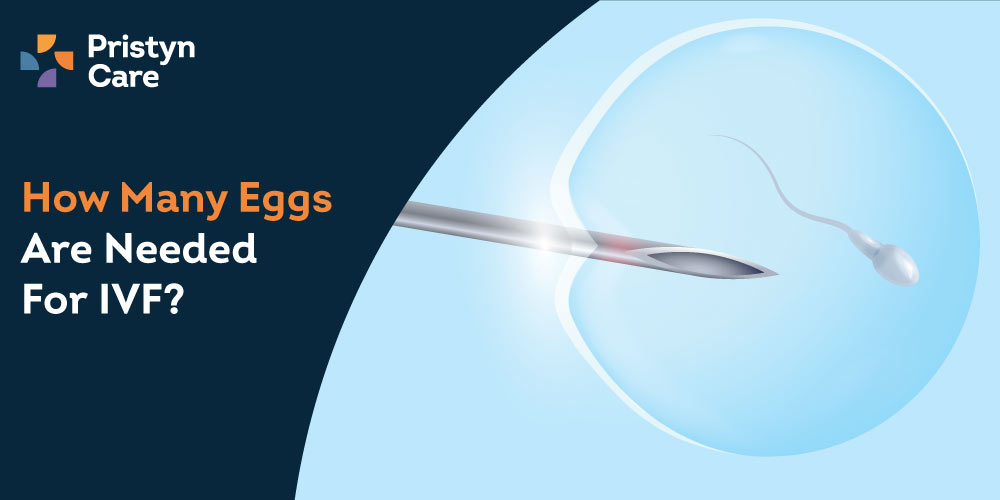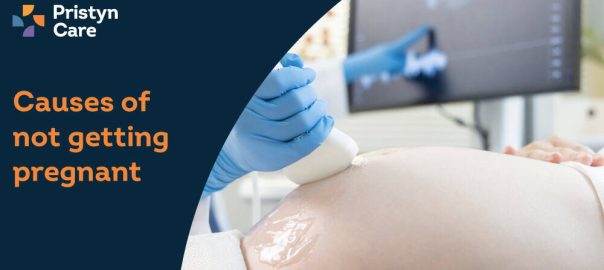![]() Views: 83
Views: 83
How Many Eggs Are Needed For IVF?
Dedicated Support at Every Step!
Our Doctors are available 24 hours a day, 7 days a week to help you!
Call Us9513-316-643Table of Contents
What is the average number of eggs retrieved during an IVF egg retrieval?
If you or someone you know is considering having an IVF (In Vitro Fertilisation) procedure, it's natural to have questions. One common query often asked is regarding the average number of eggs retrieved during an IVF egg retrieval. Generally, the average number of eggs retrieved during an IVF egg retrieval ranges between 10 and 15. However, this can vary depending on factors such as age, ovarian reserve, response to fertility medications, and overall health.
It's important to remember that everybody is different, so the response may differ from case to case. Your doctor will guide you and provide personalised advice based on your circumstances.
No Cost EMI, Hassle-free Insurance Approval
What is a good number of eggs retrieved for IVF?
Now that we have discussed the average number of eggs typically retrieved during an IVF egg retrieval, let's understand what can be regarded as a 'good' number. The objective of an IVF cycle is not just to retrieve a large quantity of eggs but also those of good quality.
A good number usually falls in the range of 8-14 eggs. This provides a balanced opportunity for some eggs to fertilize successfully while minimising the potential risks associated with retrieving a large number of eggs, such as Ovarian Hyperstimulation Syndrome (OHSS). Keep in mind that the goal here is a healthy pregnancy and not merely numbers.
However, it's essential to remember that successful IVF doesn't solely depend on the quantity of eggs retrieved. Factors like egg quality, sperm quality, and uterine conditions also play a significant role in determining the success rate of IVF. It's advised to have open discussions with your doctor who can help you understand these factors better.
Do more eggs retrieved mean a higher success rate?
The number of eggs retrieved during an IVF cycle can have a significant impact on the success rate of the procedure. Generally, retrieving more eggs provides a greater chance of having viable embryos to transfer. This is because not all eggs will fertilize or develop into healthy embryos. By increasing the number of eggs retrieved, the likelihood of obtaining good-quality embryos increases, which can lead to higher chances of successful implantation and pregnancy. Additionally, having more embryos available allows for multiple attempts at implantation without undergoing another full IVF cycle, potentially enhancing overall success rates.
However, the quality of the eggs is equally important as the quantity. Retrieving a large number of eggs does not guarantee success if many of them are not viable or of poor quality. Furthermore, overly aggressive stimulation to produce more eggs can sometimes lead to ovarian hyperstimulation syndrome (OHSS), a potentially dangerous condition. Therefore, a balanced approach that aims for an optimal number of high-quality eggs, rather than simply maximizing the quantity, is crucial. Fertility specialists tailor treatment protocols to each individual, considering factors such as age, ovarian reserve, and overall health to maximize the chances of a successful outcome.
Role of eggs in IVF success rate
The success of In-Vitro Fertilisation (IVF) heavily depends on the quality and quantity of eggs. IVF, for those who are new to the term, is a procedure where an egg is fertilized by sperm outside the body in a laboratory. Once the egg develops into an embryo, it is implanted in the woman's uterus. Now, you might ask, "Why are eggs so crucial?".
Well, eggs are the primary building blocks of reproduction. Their health and viability play a significant role in whether or not a successful pregnancy will occur. Healthy and mature eggs result in high-quality embryos, which have a higher chance of surviving to term. On the contrary, if eggs are of poor quality or low in number, the chances of successful IVF are reduced.
Here are a few key points highlighting the role of eggs in IVF success rate:
- Healthy Eggs: These contribute towards better fertilisation rates and create high-quality embryos.
- Egg Quantity: The more mature eggs retrieved during an IVF cycle, the better your chances of success.
- Age Factor: A woman's age is directly related to egg quality. Younger women usually have healthier and more eggs compared to older women.
Role of medications in improving egg count
It's no secret that certain medications can play a pivotal role in improving egg count. These drugs, commonly known as fertility drugs, aid in stimulating the ovaries to produce multiple eggs during an IVF cycle. This process is often referred to as ovarian stimulation.
The following are some commonly prescribed fertility medications:
- Gonadotropins: These injectable hormones stimulate the ovaries to produce multiple eggs.
- Clomiphene Citrate: This oral medication is used to induce ovulation, especially in women with polycystic ovary syndrome (PCOS).
- Letrozole: This drug is often used in women with PCOS to stimulate the ovaries.
It's important to note here that while these medications can improve egg count, they do not guarantee success in every case. Each woman's body responds differently to these drugs. Therefore, individualised treatment plans are crucial for optimising IVF outcomes.
In conclusion, both the quality and quantity of eggs and the appropriate use of fertility medication play a vital role in the success of an IVF cycle. Always consult your doctor for personalised advice and treatment plans.











